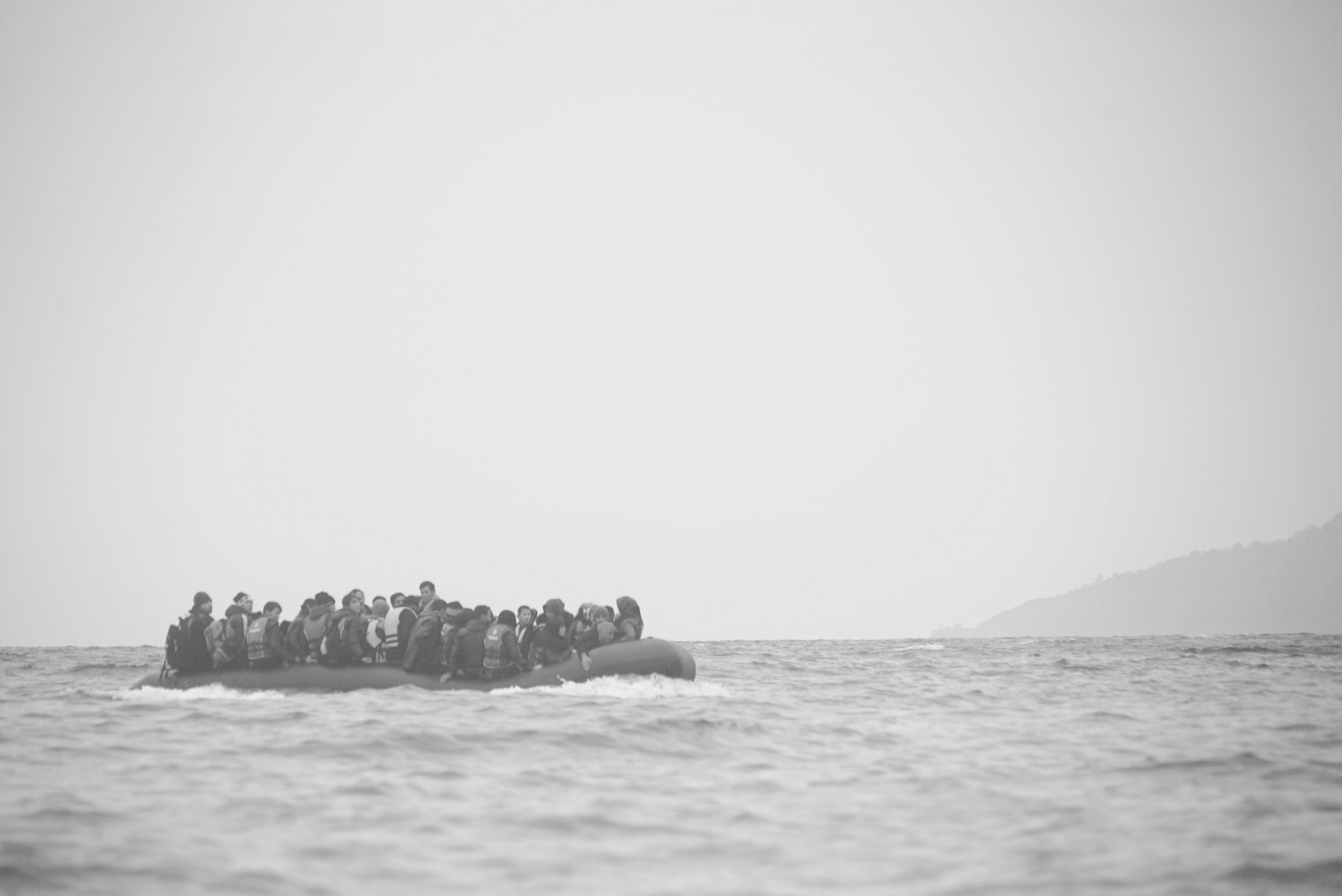Poetry Feature: Sanctuary

Refugees on a boat crossing the Mediterranean Sea, heading from Turkish coast to Lesbos, 29 Jan. 2016. Photo Mstyslav Chernov/Unframe, CC-BY-SA-4.0.
Sanctuary
The village creek serpentines
to open seas where I stand
all day at the ocean shore, feeling
the Earth’s core tremble.
Sailor Melville got it right, picturing
landlubbers lined at water’s edge
looking outward on holidays
chary of wet feet.
I’m of the coastal breed, fear-fed
by tsunamis, yellow signs reminding
NEVER TURN YOUR BACK
ON THE WAVES
But when a war overflows the skin
of safety, even a leaky ship looks dry,
launches a last hope, desperation
uncommon courage.
Later, the crew of lifeguards reports
orange tubes floating like macaroni,
hearing the human plea for sanctuary—
Bodies in the water!
How few they could reach, old men,
children, the drenched Syrian mother
who tumbled naked overboard,
cried out, slipped away.
Flotsam whirls undersea
or aerates into mist—
a woman’s gasp, spirit-ghost,
lifelines passing fast.
On Writing “Sanctuary”
The first pages of Melville’s Moby Dick depict the fascination of landlubbers looking out to sea: “They must get just as nigh the water as they possibly can without falling in.” I, born under the water sign of Scorpio, share that more than ordinary impulse. I live twenty minutes’ drive from the great Pacific and yearn to hear the unrelenting waves crash against the cliffs, the steady, reliable throb that echoes with the human heartbeat, the way pendulum clocks on a wall align their rhythm.
The eye’s searching for the horizon is a planetary experience: what lies beyond the global edge? Keep going and you don’t find another world, but a different aspect of the one we already inhabit. By which I mean, other peoples, other cultures, other problems.
I belong to an organization—the not-for-profit Abraham Lincoln Brigade Archives (ALBA)—that gives a generous annual award for human rights activism. Each year I participate in the selection of a person or group that devotes itself, at some risk, to helping people in distress.
The awardees, in my estimation, are heroic.
In my search for appropriate nominees, I came upon a group of lifeguards from Catalunya, the region of northeast Spain that touches the Mediterranean. They call themselves Proactiva Open Arms, a non-government, non-profit organization. Their mission is simple, dangerous, indeed controversial. They rescue people from the sea.
They specialize in surveillance and rescue operations of boats packed with refugees. While the world’s leaders wage wars that cause the numbers of refugees to rise, this small group rushes into the waters to save drowning people.
They are good at their work, though limited by the support they can muster. And they antagonize governments and groups that would prefer not to call attention to the thousands of refugees who have already drowned or will drown or might have been saved if Proactiva Open Arms had more resources.
When a couple of these saviors came to New York to accept their award (the ALBA/Puffin Prize for Human Rights Activism), I had a chance to listen to some of their stories of courage and loss.
Their narrative, with a touch of Melville, became the basis for my poem, “Sanctuary.”
Peter Neil Carroll is Chair Emeritus of the ALBA Board. “Sanctuary” was first published in the North American Review (Winter, 2019); the essay appeared on the North American Review website on April 3, 2019.












